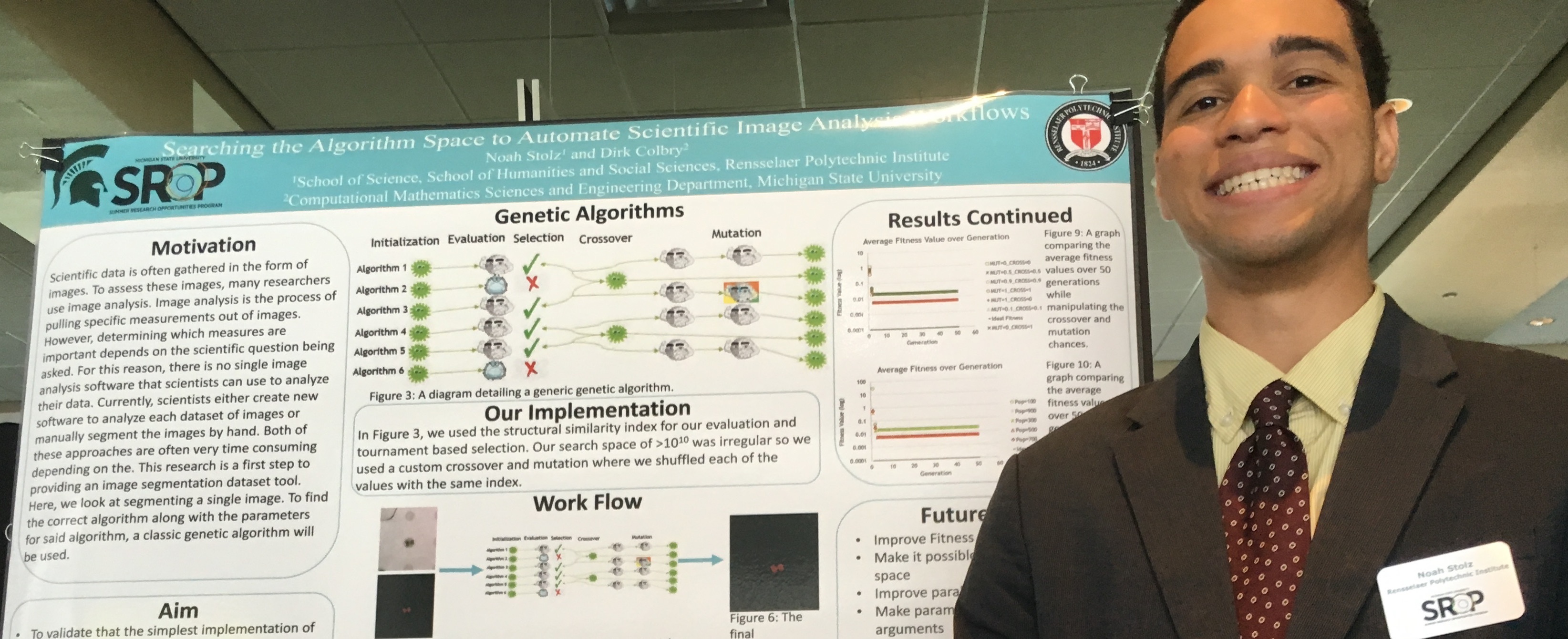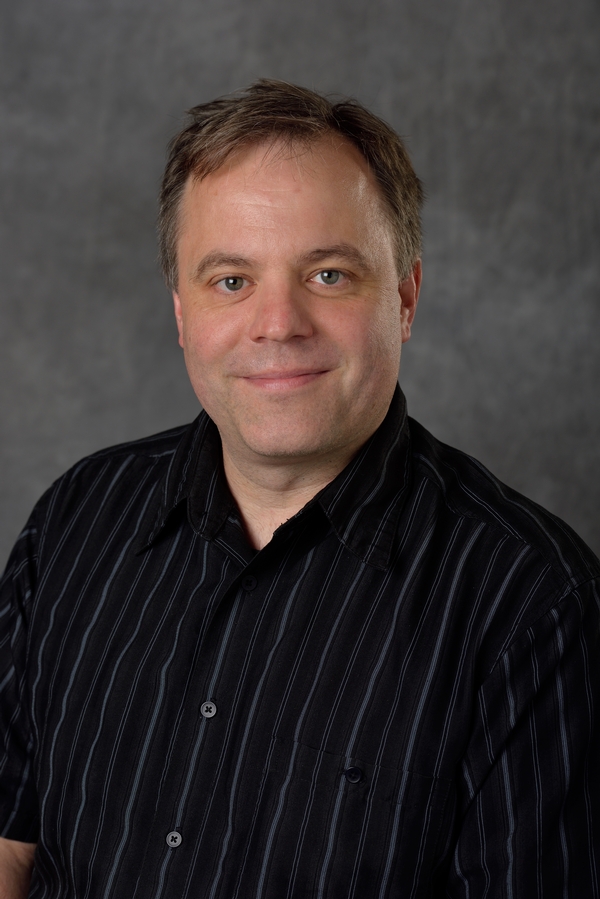Searching the Algorithm Space to Automate Scientific Image Analysis Workflows
Wed 24 July 2019 by Dr. Dirk Colbry
Summer 2019 SROP student poster presentation at MidSure by Noah Stolz
Scientific data is often gathered in the form of Images. Scientific Image analysis is the process of pulling specific measurements out of images. Which measures are important complete depend on the scientific question being asked. For this reason, there is no single image analysis software that scientists can use to analyze their data. Currently new software needs to be written for every problem. This research aims to automate the software development by focusing on common image analysis workflows. We are developing methods to formulate these workflows and search the “algorithm space” to find the specific workflow for a specific scientific problem.
As an example and proof of concept, this research will look at the common workflow of Image Segmentation. Image segmentation is a process used in many fields of research, from analyzing cells in petri dishes to identifying different crops in fields. However, image segmentation is a time- consuming process. Although an individual picture may take a short amount of time for a researcher to manually segment, this task can become an overwhelming burden for large data sets. While there are many image segmentation algorithms for specific data sets, no single algorithm will generalize well across other data sets. In this project, we aim to create a tool that helps research segment any image based data set and try to find an algorithm that will automate the process for the particular data analysis task. The success of this tool is in reducing the amount of research time it takes to segment an image data set. In this prototype, we will use python’s skimage.segmentation library which provides a comprehensive set of image segmentation algorithms. Each algorithm in the skimage.segmentation has multiple parameters which leads to a large search space of different parameters and algorithms. We call this search space the “Algorithm Space”. We will apply genetic algorithms which are known to effectively evaluate large, non-differentiable search spaces to the image segemntaiton “Algorithm Space”. This tool will be tested against prelabeled datasets and measure amount of time the tool saves for the researcher to segment the images.
